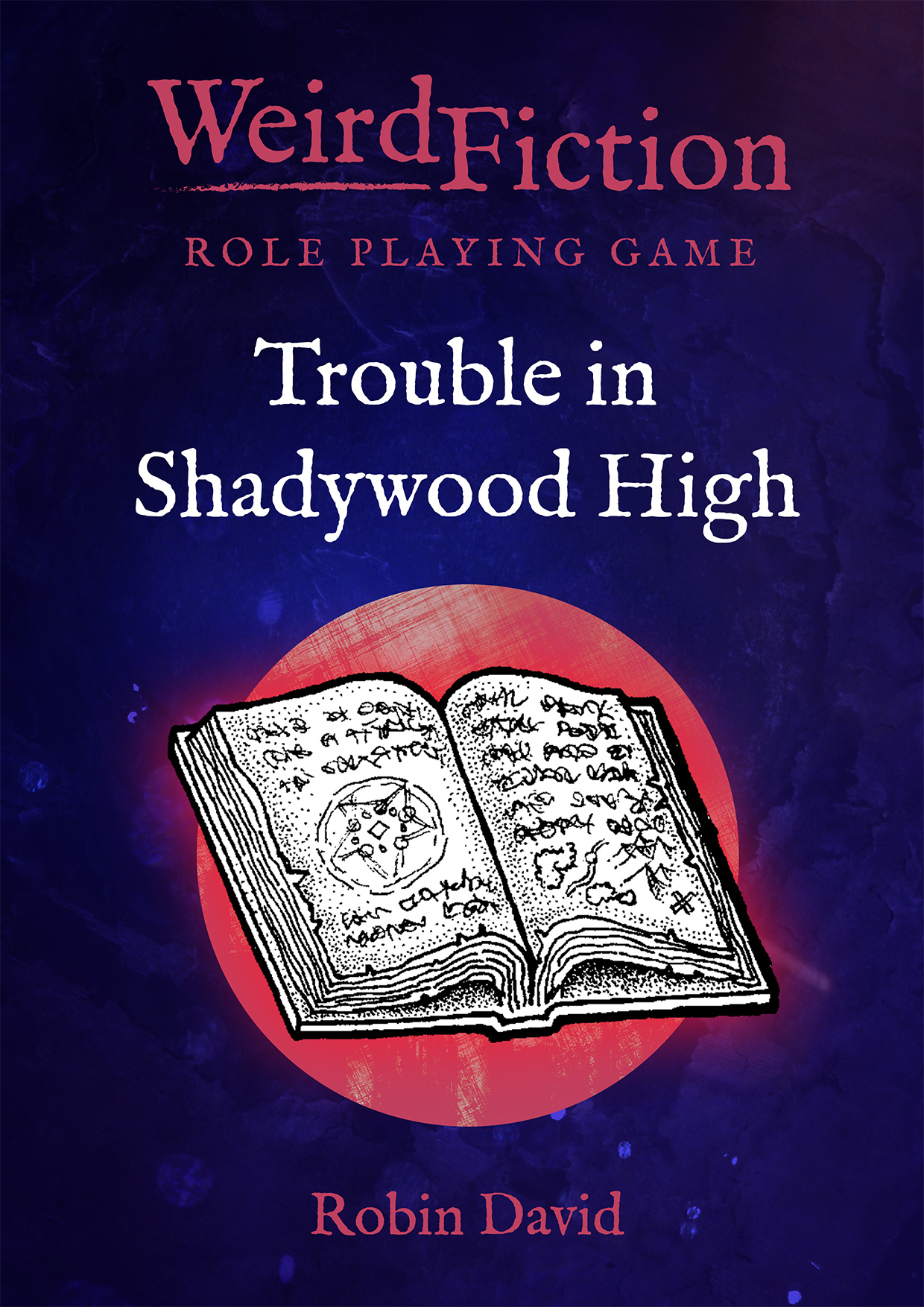Weird Fiction
Weird Fiction is a role-playing game system which I designed to play quick, simple, one-shot scenarios. It's a good choice for players who are either new to role-playing or who want to try something a little quirky and narrative focused.
I get incredibly jealous when I hear stories of RPG groups that have been playing the same campaign for years - taking the time to develop their characters and stories as they delve through mysterious dungeons. But every role playing campaign that I've ever been in has fallen apart after only a handful of sessions. And I know I'm not alone with this experience. Due to real-life commitments, players often find that getting together for regular sessions can simply be too difficult. So I decided to make a game that would cater for groups that can only meet periodically, or maybe even just one time. Weird Fiction has a very simple rule-set and has a way for players to very quickly create characters and jump into the game. Even if that group only meets one time, they can have fleshed out characters, a narrative, and a memorable experience.
Weird Fiction's simplicity all stems from the straightforward skill-check system and its close relation to the streamlined character creation system. In any Weird Fiction RPG session, players don't need to keep track of statistics, skill values, ammo counts, health points, or weight allowances. They only need to keep track of their own character's basic history, experiences, motivations, relationships and skills. These facts about the character are what determines difficulty in any in-game skill-check.
When a player encounters a moment in the game where a skill-check would be necessary - perhaps they are swinging an axe, trying to persuade a non-player character, or trying to leap over a wall - they reach for a pool of six sided dice to see if they succeed or fail in this task. In a default skill check, they will take two dice - one is called a neutral die and one is called a red die. To succeed in the skill check, they need to roll at least one 5 or 6 - and the more they roll the better. Failing to roll a single 5 or 6 means the player has failed. If at that point, the red die shows a 1, they have critically failed. To make their task easier, players can add dice to their rolls if their character is proficient in a task, prepared for a task, or being assisted. It's as simple as saying, "My character, Julie, has experience in acrobatics, so should get an extra die for that." If the game-master agrees and your character sheet shows this history, then the player gets the extra dice, which gives them more chances to roll that 5 or 6.
The game-master can make skill checks more difficult by reducing the number of dice a player is allowed to roll, using a similar system as described above, or they can make the check more risky by substituting neutral dice for red dice. This allows for nuanced skill checks where perhaps an action is not difficult, but is very risky - the player simply rolls a bunch of red dice, so that if they fail their roll, there is a much higher chance of rolling a critical failure.
Character creation typically takes about 5-10 minutes for the whole group. They begin by choosing a character class, which will immediately inform them about a bunch of their skills, and then they answer a series of randomly chosen questions in order to determine their character's past and other experiences. At the end, they establish any relationships they have within the player group and they are good to go.
The first version of Weird Fiction is called Trouble in Shadywood High and is a high-school horror scenario, very much inspired by Buffy the Vampire Slayer. The scenario provides a lot of detailed help for the game master, so it's quite possible for them to run the scenario after having only read through the document briefly. Trouble in Shadywood High is absolutely free to download and play, though if you do enjoy if, please do buy me a coffee!
